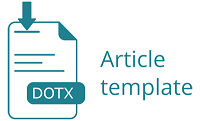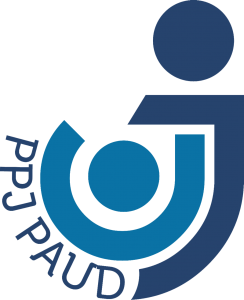Ketahanan Komunitas dalam Menghadapi Banjir : Suara dari Guru PAUD di Dayeuhkolot
Abstract
Penelitian ini bertujuan untuk mengeksplorasi pengalaman guru Pendidikan Anak Usia Dini (PAUD) yang terdampak banjir di Dayeuhkolot dilihat dari sudut pandang ketahanan komunitas. Dengan menggunakan pendekatan kualitatif dan desain penelitian studi kasus, data dari penelitian ini dikumpulkan melalui forum group discussion dan wawancara mendalam. Sebanyak tujuh guru PAUD yang aktif di wilayah Dayeuhkolot dipilih sebagai responden dalam penelitian ini. Analisis data pada penelitian ini menggunakan grounded theory untuk mengungkap pandangan, pengalaman, serta strategi yang digunakan oleh para guru PAUD dalam menghadapi banjir dan bagaimana dampaknya terhadap komunitas mereka. Temuan menyoroti beragam aspek, termasuk persepsi tentang risiko banjir, kesiapan dan penanganan bencana banjir, serta perlunya upaya kolaboratif dari berbagai pihak dalam memperkuat ketahanan komunitas untuk menghadapi banjir. Hasil penelitian ini memberikan wawasan baru bagi pengembangan literatur pada program pendidikan bencana berbasis komunitas, pemahaman partisipasi anak, guru, orang tua, dan lingkungan masyarakat dalam menghadapi banjir, serta strategi penanganan bencana di Dayeuhkolot maupun konteks serupa di wilayah lain.
Keywords
Full Text:
PDFReferences
Amalia, R., & Nuqul, F. L. (2020). Resiliensi pada anak berkonflik dengan hukum (ABH) di Indonesia ditinjau dari efikasi diri. Al-Qalb, 11(1), 38–48.
Arora, M. (2021). Environment and human health as complex interacting systems. Bioessays, 43(9), 2100177.
Arora, M., Giuliani, A., & Curtin, P. (2020). Biodynamic interfaces are essential for human–environment interactions. Bioessays, 42(11), 2000017.
Artha, R. S., Suryana, D., & Mayar, F. (2020). E-Comic: Media for understanding flood disaster mitigation in early childhood education. JPUD-Jurnal Pendidikan Usia Dini, 14(2), 341-351.
Bandura, A. (1982). Self-efficacy mechanism in human agency. American Psychologist, 37(2), 122–147.
Barnhart, S., Bode, M., Gearhart, M. C., & Maguire-Jack, K. (2022). Supportive Neighborhoods, Family Resilience and Flourishing in Childhood and Adolescence. Children, 9(4).
Creswell, J. W. (2007). Qualitative Inquiry and Research Design: Choosing Among Five Traditions. Dalam Western Journal of Nursing Research. Sage Publications, Inc, 21(1).
DeMello, A. S., Egan, R., & Drew, J. (2020). Resilience-building by community health organizations: A guiding model for practice. Journal of the Royal Society of New Zealand, 50, 552–571.
Dewangga, W., Linda, V., Ningtyas, M. L. R., & Safitri, D. A. (2024). Peta Kerawanan Banjir Di Kabupaten Bandung. Jurnal Multidisiplin Dehasen (MUDE), 3(2), 91-100.
Dorado Barbé, A., Pérez Viejo, J. M., Rodríguez-Brioso, M. del M., & Gallardo-Peralta, L. P. (2021). Emotional well-being and resilience during the COVID-19 pandemic: Guidelines for social work practice. International Social Work, 64(2), 279–284.
Flynn, P. J., Bliese, P., Korsgaard, M., & Cannon, C. (2021). Tracking the process of resilience: How emotional stability and experience influence exhaustion and commitment trajectories. Group & Organization Management, 46(4), 692–736.
Friales, W. (2021). Facilitative mentorship: A grounded theory on moderating campus organizations. JPAIR Institutional Research, 16(1).
Fu, Q., & Zhang, X. (2024). Promoting community resilience through disaster education: Review of community- based interventions with a focus on teacher resilience and well-being. PLOS ONE, 19(1), e0296393.
Gecolea, C. M., & Gecolea, P. G. (2021). Strengthening parent’s engagement amidst pandemic: A grounded theory. International Journal of Theory and Application in Elementary and Secondary School Education, 3(2), 91–104.
Gernowo, R., & Nurwidyanto, M. I. (2021). The flood disaster management based on extreme tropical rainfall in decades of climate change in Indonesia. International Journal of Environmental Science and Technology, 5(2), 124–130.
Green, M. J., Piotrowska, P. J., Tzoumakis, S., Whitten, T., Laurens, K. R., Butler, M., Katz, I., Harris, F., & Carr, V. J. (2023). Profiles of resilience from early to middle childhood among children known to child protection services. Journal of Clinical Child & Adolescent Psychology, 52(4), 533–545.
Hadfield, K., & Ungar, M. (2018). Family resilience: Emerging trends in theory and practice. Journal of Family Social Work, 21(2), 81–84.
Hakimah, N., Nadhiroh, S., Dhorta, N. F., Tapriadi, et al. (2022). Dual role of early childhood teachers as health cadres in reducing stunting. Media Gizi Indonesia, 17(1sp), 244–249.
Howard, S., Dryden, J., & Johnson, B. (1999). Childhood Resilience: Review and critique of literature. Oxford Review of Education, 25(3), 307–323.
Ko, S. (2019). The effect of compassion on job performance: Focusing on the creating research model through qualitative research. Journal of Convergence Information Technology, 9(6), 65–74.
L. (2008). Community resilience as a metaphor, theory, set of capacities, and strategy for disaster readiness. American Journal of Community Psychology, 41(1–2), 127–150.
Leite, M., Ross, H., & Berkes, F. (2019). Interactions between individual, household, and fishing community resilience in southeast Brazil. Ecology and Society, 24(3).
Liu, W. (2022). Disaster communication ecology in multiethnic communities: Understanding disaster coping and community resilience from a communication resource approach. Journal of International and Intercultural Communication, 15(1), 94–117.
Masten, A. (2020). Resilience of children in disasters: A multisystem perspective. International Journal of Psychology, 55(5), 617–625.
Masten, A. S., & Obradovic, J. (2008). Disaster preparation and recovery: Lessons from research on resilience in human development. Ecology and Society, 13(1).
McDonald-Harker, C., Drolet, J. L., & Colvin, S. (2021). The role of sport in building resilience among children and youth impacted by disaster. The International Journal of Sport and Society, 12(1), 33–51.
McDonnell, S. (2019). Other dark sides of resilience: Politics and power in community-based efforts to strengthen resilience. Anthropological Forum, 30(1), 55–72.
Mishra, S., & Dey, A. K. (2022). Understanding and identifying ‘themes’ in qualitative case study research. South Asian Journal of Business and Management Cases, 11(3), 187-192.
Niman, S., Mustikasari, Daulima, N. H., Gayatri, D., & Rothhaar, T. (2024). Children and their experiences about seasonal flood disasters in Indonesia : qualitative study. Vulnerable Children and Youth Studies, 19(1), 140–157.
Norris, F. H., Stevens, S. P., Pfefferbaum, B., Wyche, K. F., & Pfefferbaum, R. Ogugua, A. C. (2022). Community Resilience and Adaptive Capacity: An Integrative Perspective. International Journal of Community Resilience Short Communication, 2, 1-4.
Nurwulandari, F. S., & Rismana, G. A. (2021, April). Community resilience to face flood disaster in the Baleendah Village, Bandung Regency, Indonesia. In IOP Conference Series: Earth and Environmental Science. IOP Publishing, 737(1), p. 012051.
Perera, D., Agnihotri, J., Seidou, O., & Djalante, R. (2020). Identifying societal challenges in flood early warning systems. International Journal of Disaster Risk Reduction, 51, 101794.
Prime, H., Wade, M., & Browne, D. T. (2020). Risk and resilience in family well-being during the COVID-19 pandemic. American Psychologist, 75(5), 631–643.
Prime, H., Walsh, F., & Masten, A. S. (2023). Building family resilience in the wake of a global pandemic: Looking back to prepare for the future. Canadian Psychology / Psychologie canadienne, 64(3), 200–211.
Prowell, A. N. (2019). Using Post- Structuralism to Rethink Risk and Resilience: Recommendations for Social Work Education, Practice, and Research. Social Work (United States), 64(2), 123–130.
Räsänen, A., Lein, H., Bird, D., & Setten, G. (2020). Conceptualizing community in disaster risk management. International journal of disaster risk reduction, 45, 101485.
Suhadi, S., Mabruroh, F., Wiyanto, A., & Ikra, I. (2023). Analisis Fenomena Perubahan Iklim Terhadap Curah Hujan Ekstrim. OPTIKA: Jurnal Pendidikan Fisika, 7(1), 94-100.
Sun, Y., Zhai, B., Saierjiang, H., & Chang, H. (2022). Disaster adaptation evolution and resilience mechanisms of traditional rural settlement landscape in Xinjiang, China. International Journal of Disaster Risk Reduction, 73.
Supriatna, E., Ekowati, D., Aziz, A. M., & Mokodenseho, S. (2023). Analyzing the relationship between cultural diversity, social capital, and community resilience in Jakarta, Indonesia. The Eastasouth Journal of Social Science and Humanities, 1(01), 28-36.
Surtiari, G. A. K., Garschagen, M., Mendes, J. M., & Budiyono, Y. (2022). Investing in flood adaptation in Jakarta, Indonesia. Dalam Investing in Disaster Risk Reduction for Resilience, 257–275.
Theiss, J. A. (2018). Family communication and resilience Family communication and resilience. Journal of Applied Communication Research, 0(0), 1–4.
Twum-antwi, A., Jefferies, P., Ungar, M., Jefferies, P., & Ungar, M. (2020). Promoting child and youth resilience by strengthening home and school environments : A literature review. International Journal of School & Educational Psychology, 8(2), 78–89.
Ungar, M. (2004). A Constructionst Discourse on Resilience: Multiple Contexts, Multiple Realities among At-Risk Children and Youth. Youth and Society, 35(3), 341–365.
Ungar, M. (2010). Families as navigators and negotiators: Facilitating culturally and contextually specific expressions of resilience. Family Process, 49(3), 421–435.
Ungar, M. (2018). Systemic resilience: Principles and processes for a science of change in contexts of adversity. Ecology and Society, 23(4), 1–17.
Ungar, M., & Theron, L. (2020). Resilience and mental health: how multisystemic processes contribute to positive outcomes. The lancet. Psychiatry, 7(5), 441–448.
Van Assche, K., Duineveld, M., Birchall, S. J., Deacon, L., Beunen, R., Gruezmacher, M., & Boezeman, D. (2020). Resilience, Reinvention and Transition during and after Quarantine. Space and Culture, 23(3), 230–236.
Walker, M., Whittle, R. Medd, W. Burningham, K., Moran-Ellis, J. & Tapsell, S. (2010). Children and Young People “after the rain has gone” – learning lessons for flood recovery and resilience:Hull Children’s Flood Project Final Report, 1–122.
Yuniardi, Y., Hendarmawan, H., Abdurrokhim, A., Isnaniawardhani, V., Mohammad, F., Alfadli, M. K., & Ridwan, P. (2019). Pendugaan akifer airtanah dengan metode geolistrik konfigurasi schlumberger di Lereng Utara Gunungapi Tangkubanparahu. Ris. Geol. dan Pertamb, 29(2), 239-253.
Yusuf, R., Razali, S., Sanusi, M., Maimun, I., Fajri, I., & Gani, S. (2022). Disaster education in disaster-prone schools: A systematic review. IOP Conference Series: Earth and Environmental Science, 1041(1).
DOI: https://doi.org/10.17509/edukids.v21i1.69155
Copyright (c) 2024 Edukids: Jurnal Pertumbuhan, Perkembangan, dan Pendidikan Anak Usia Dini

This work is licensed under a Creative Commons Attribution-ShareAlike 4.0 International License.















.jpg)






